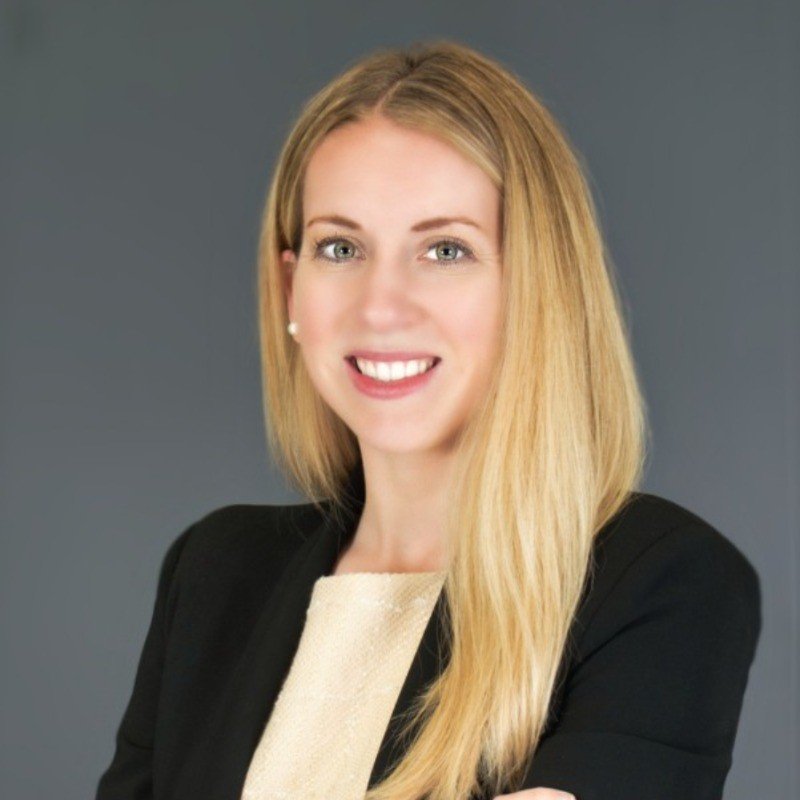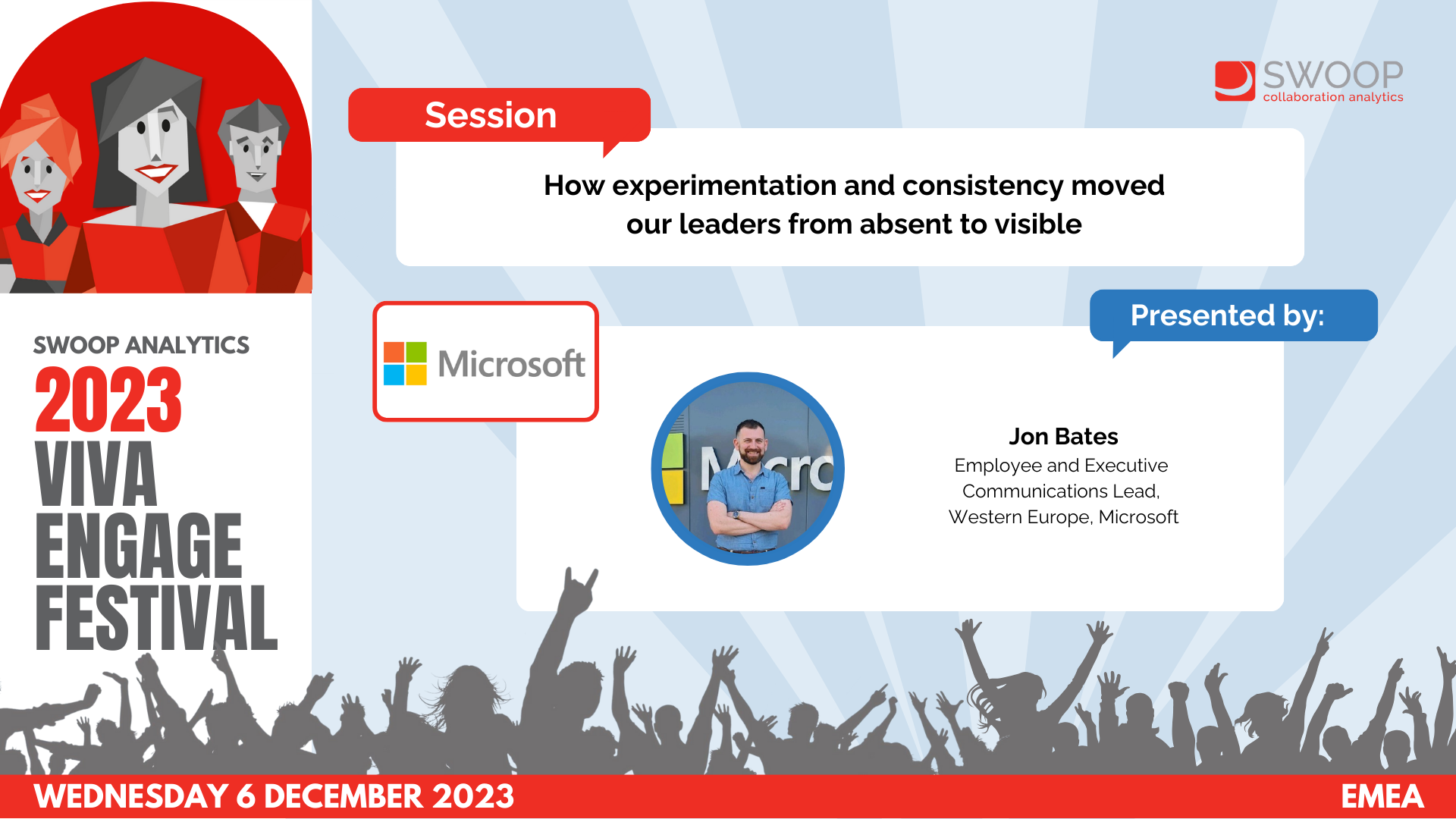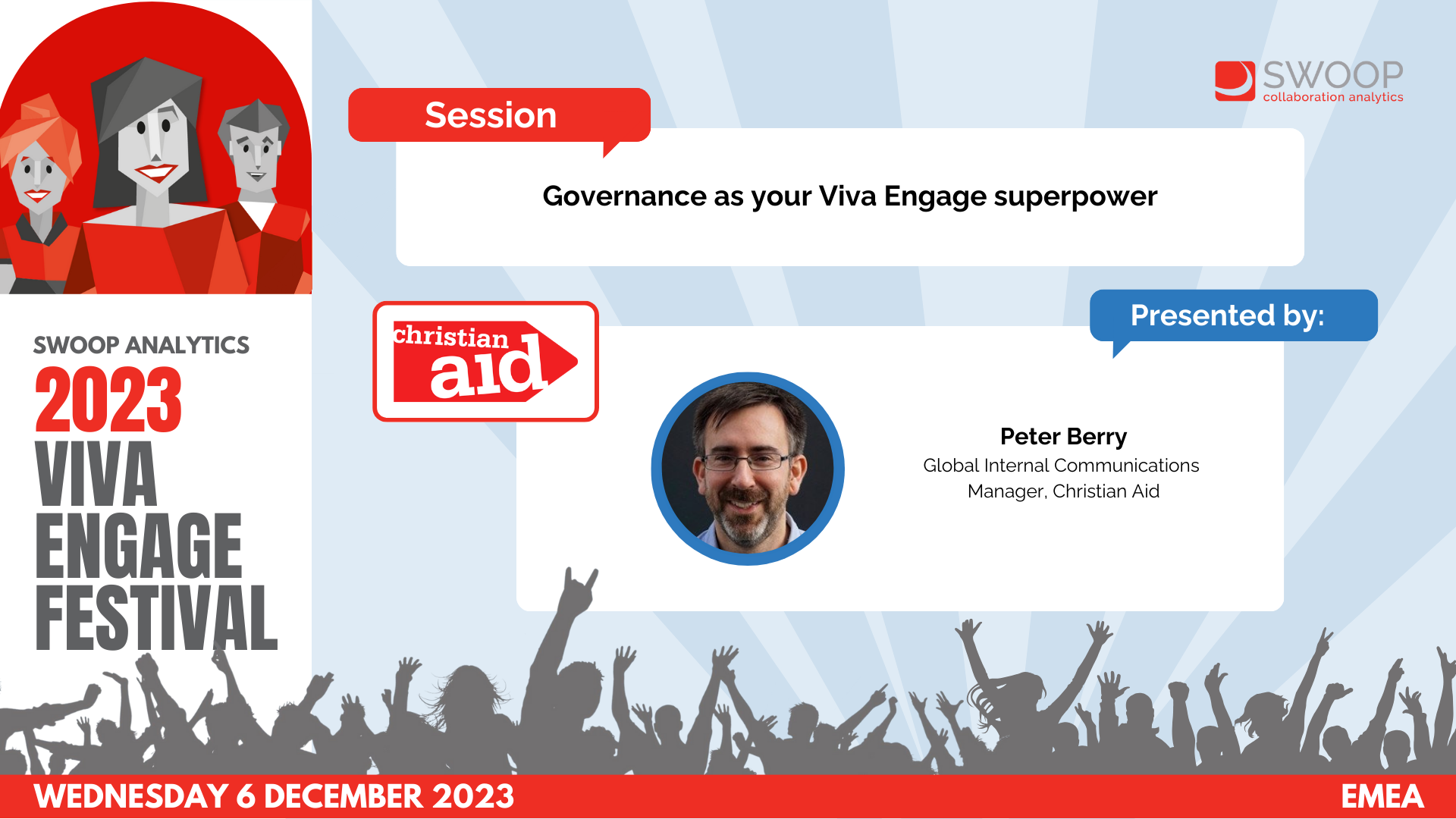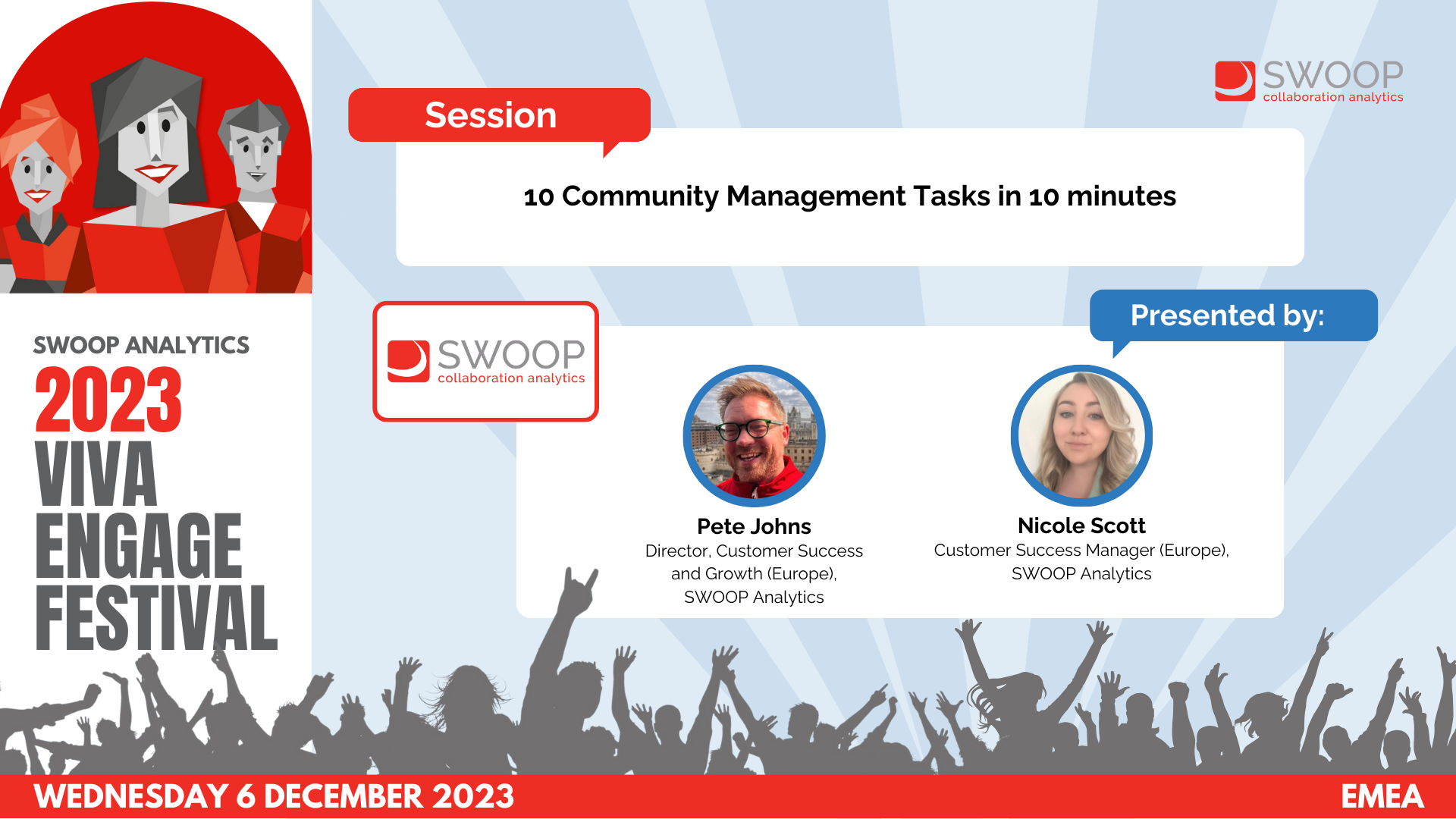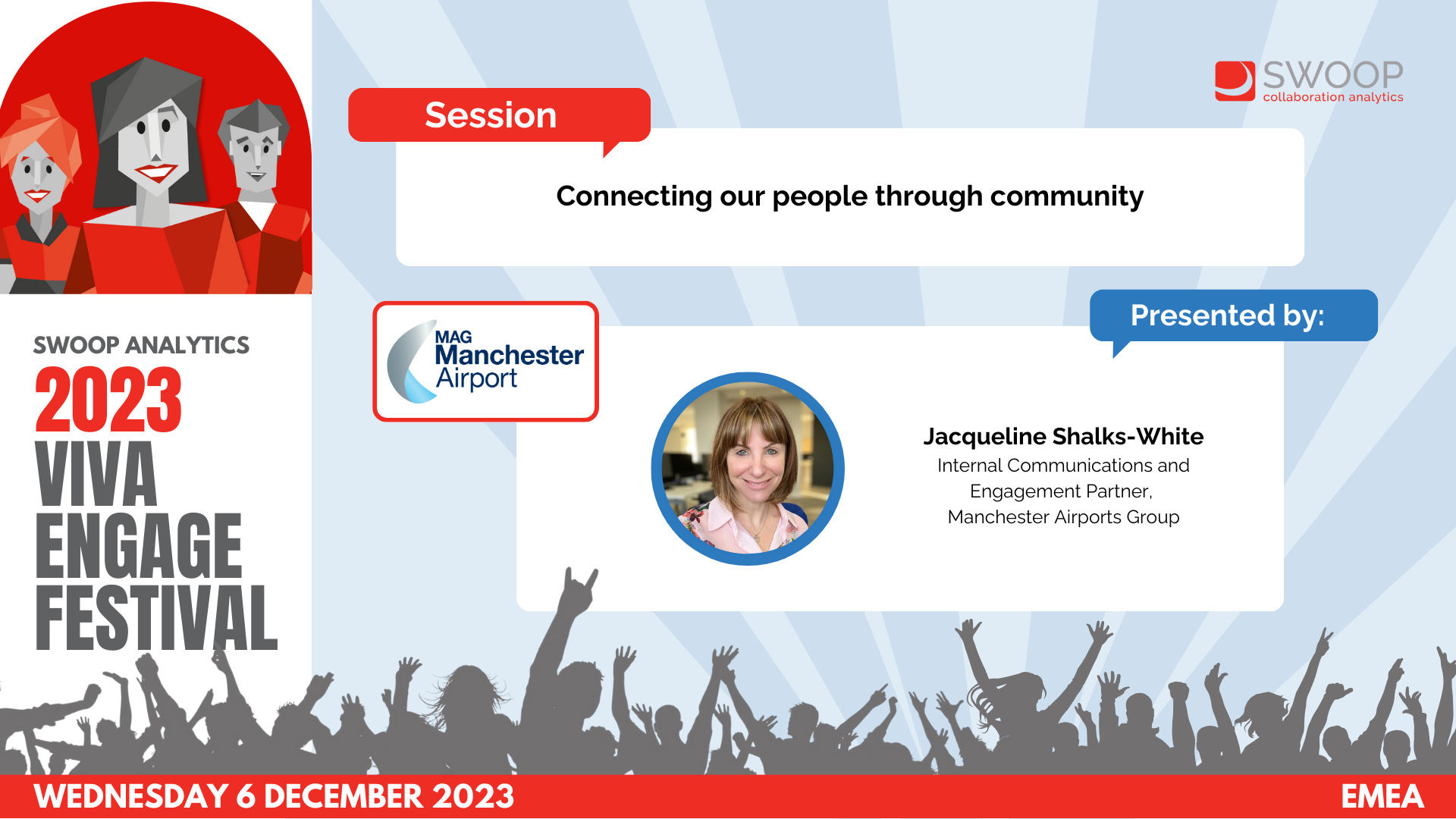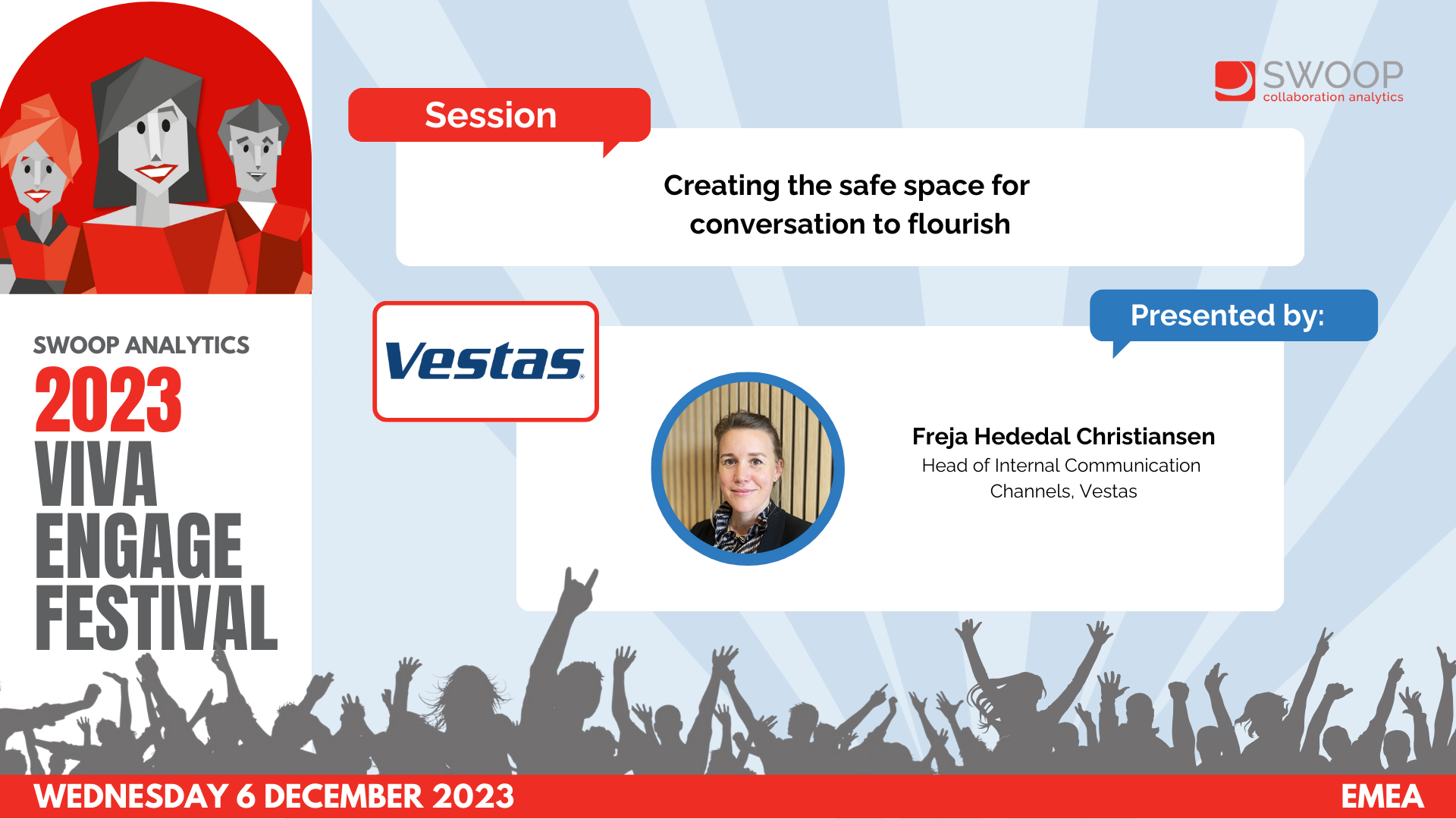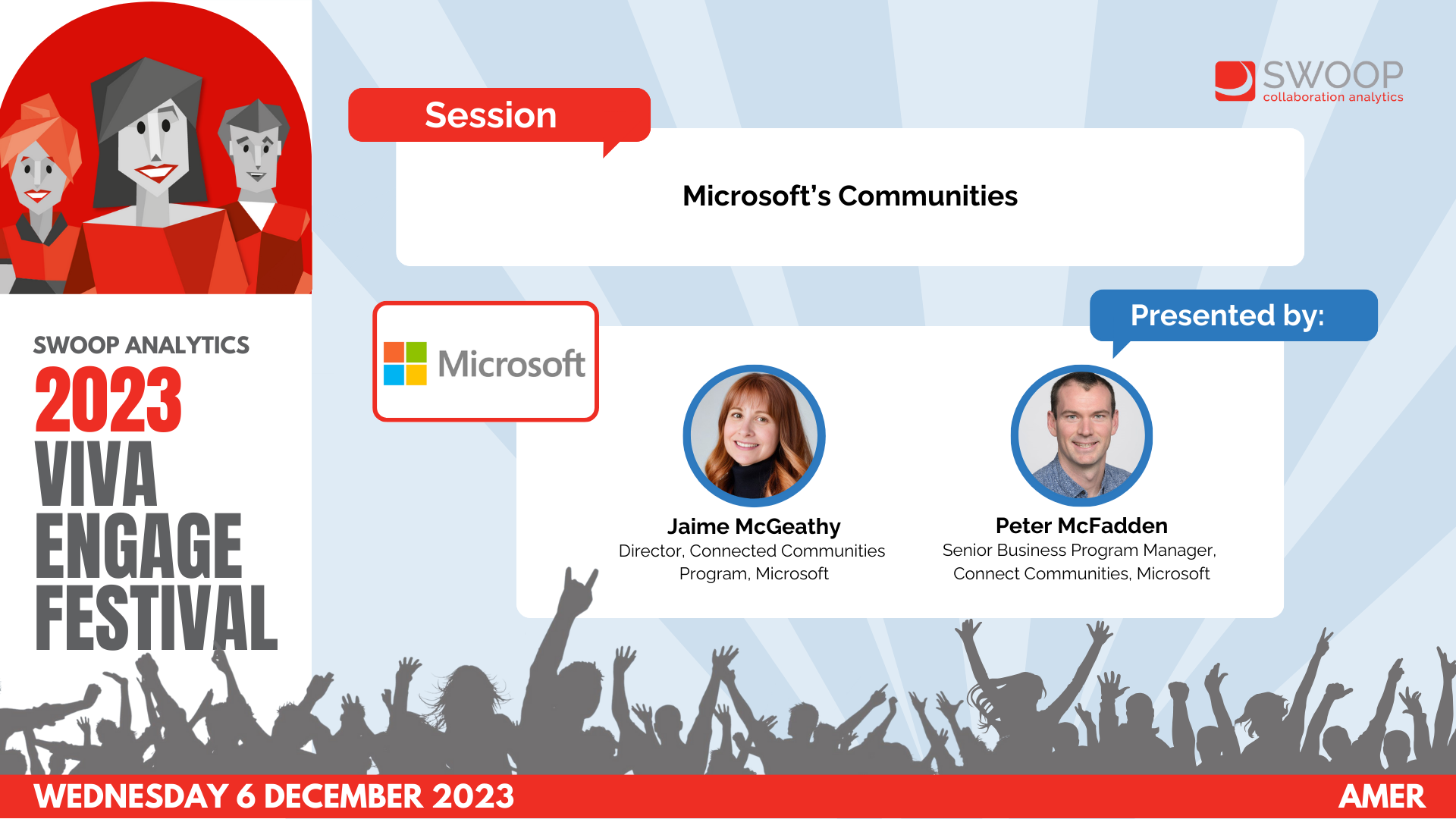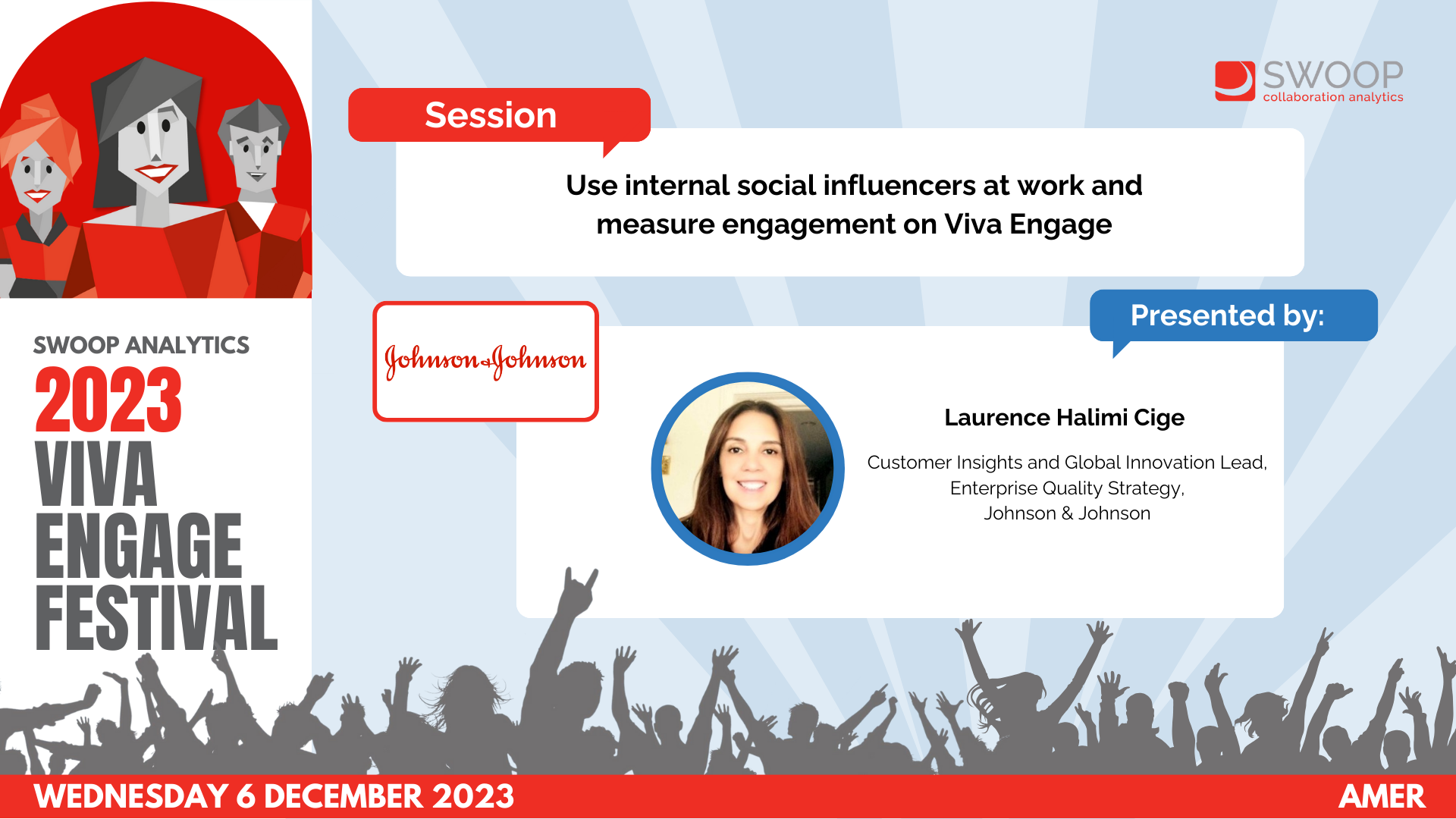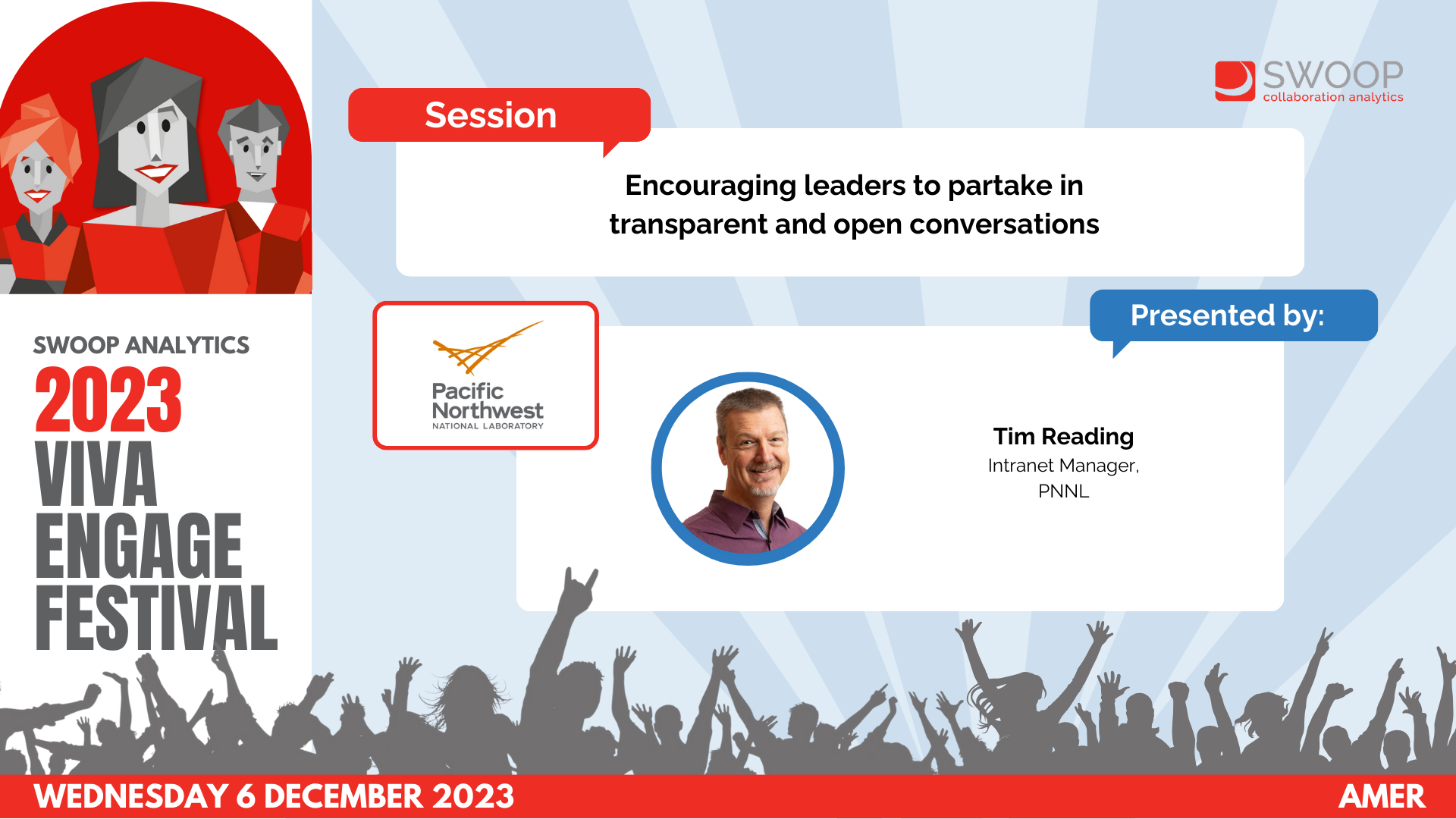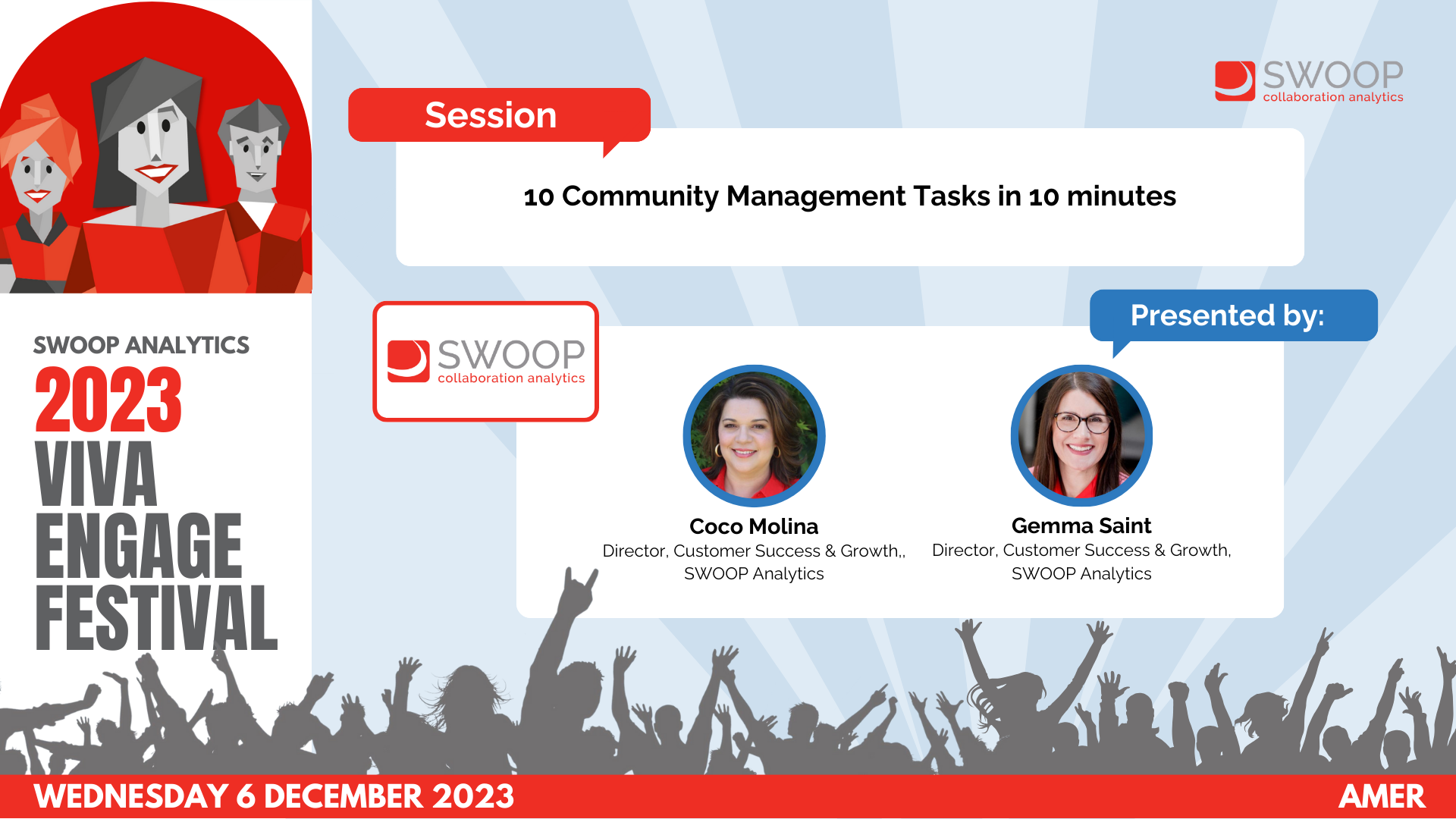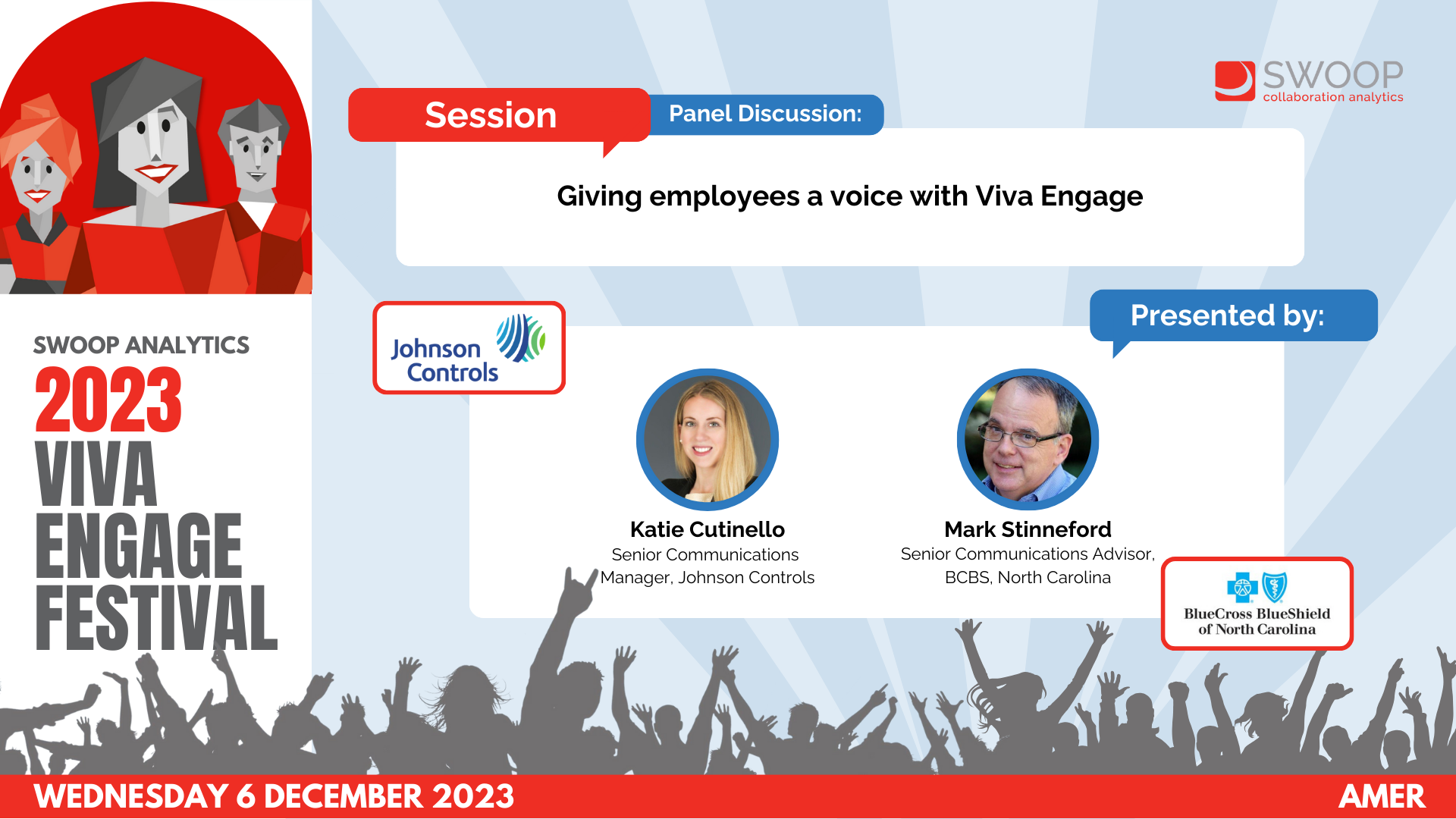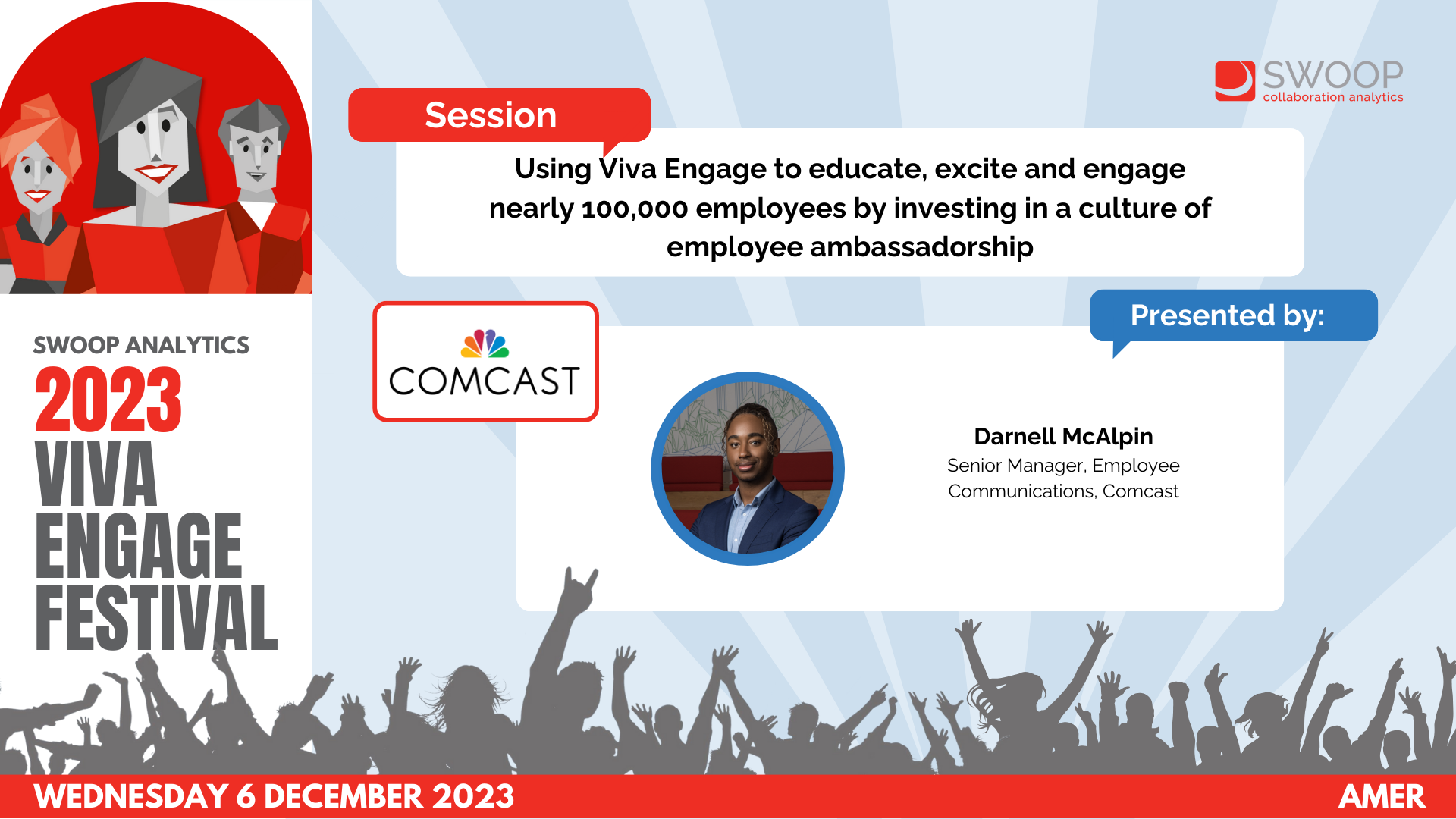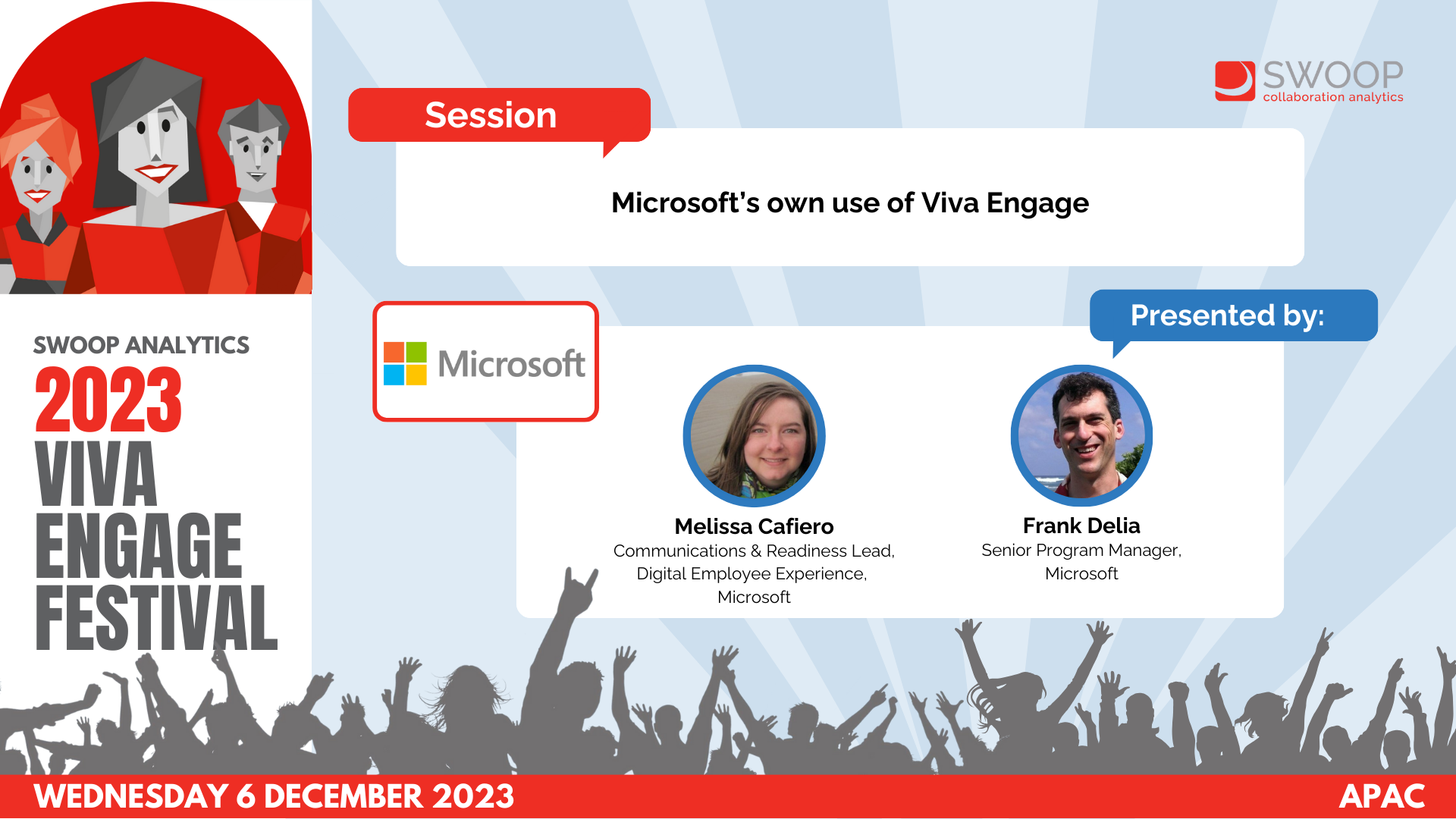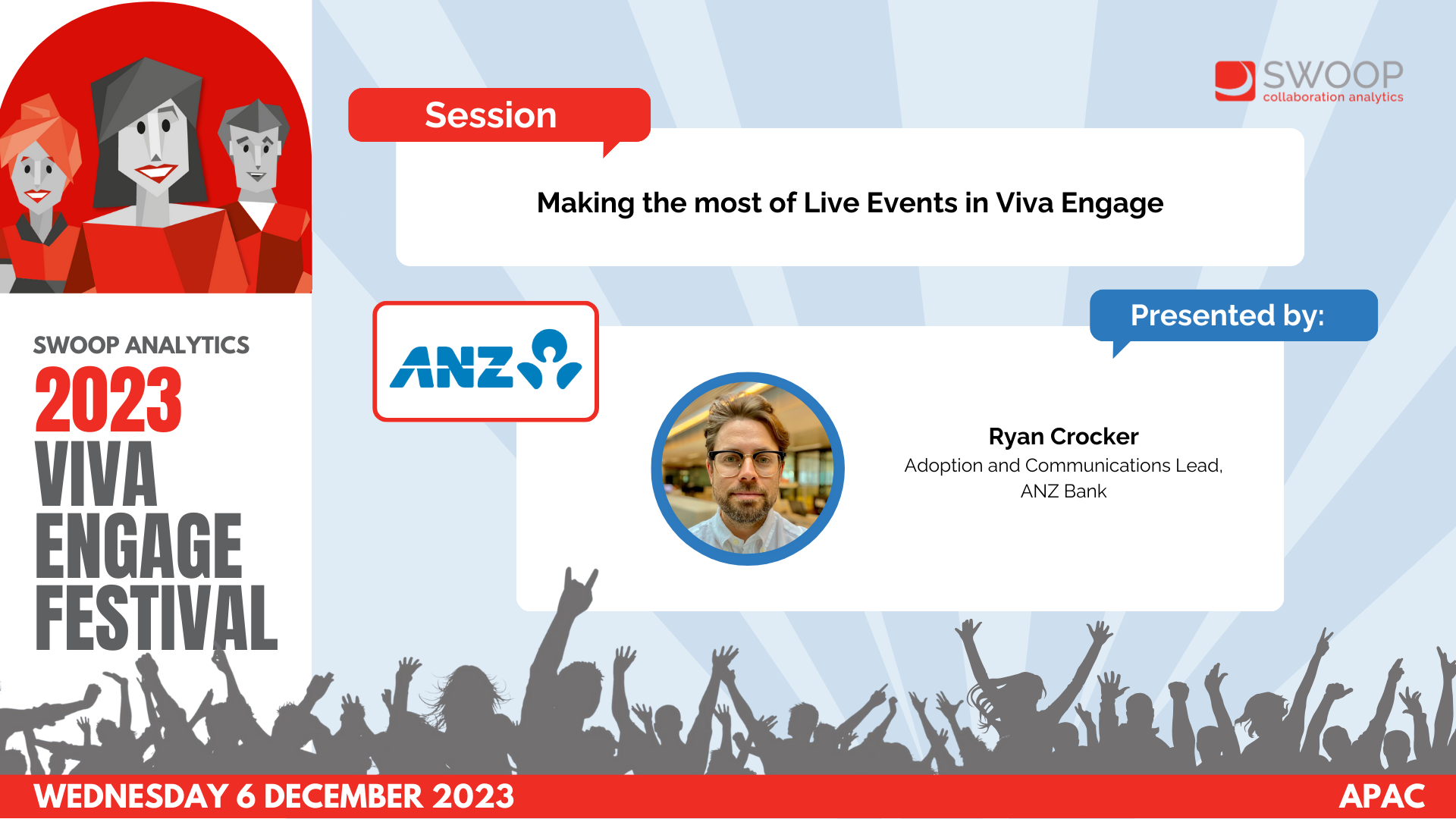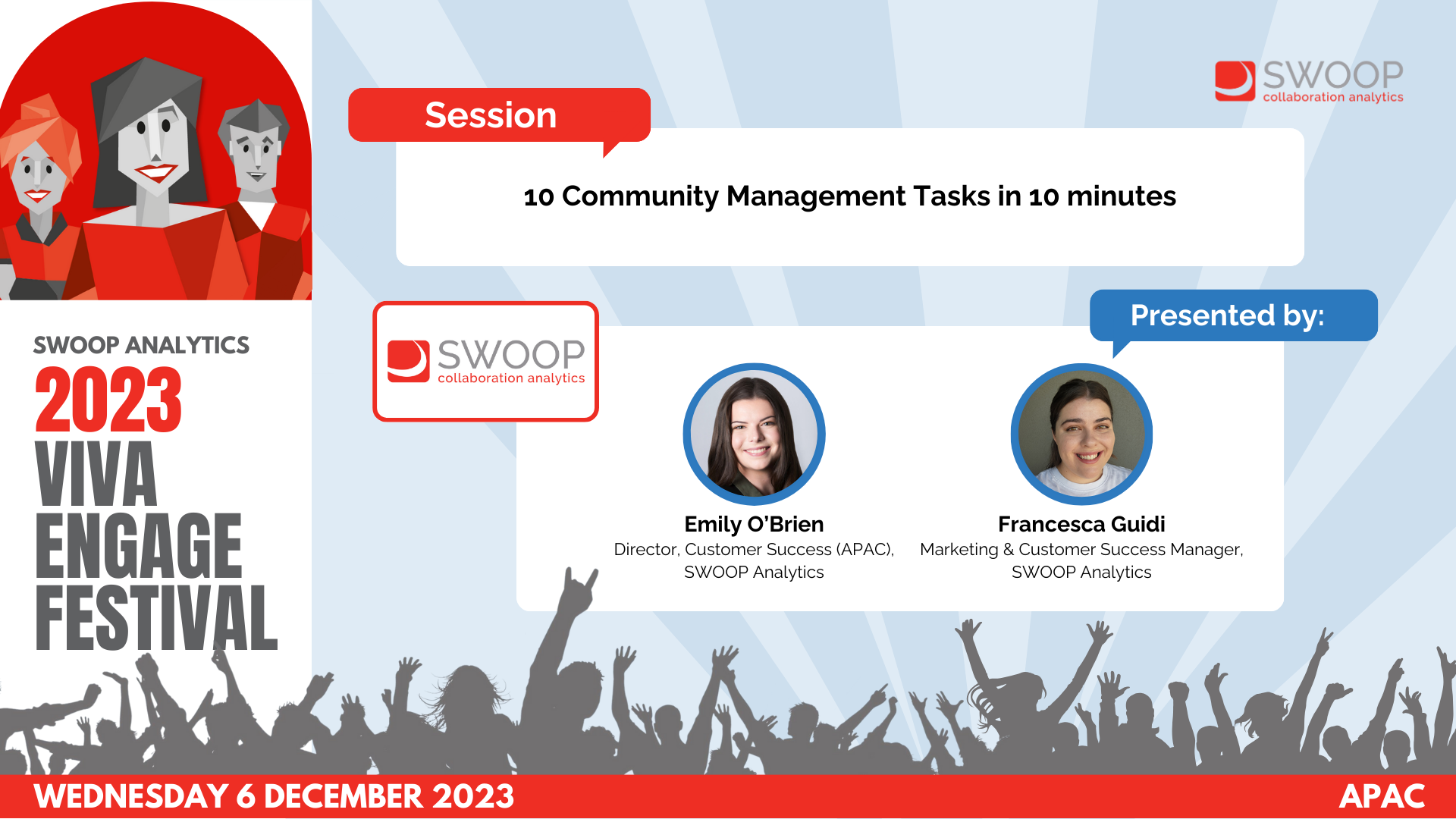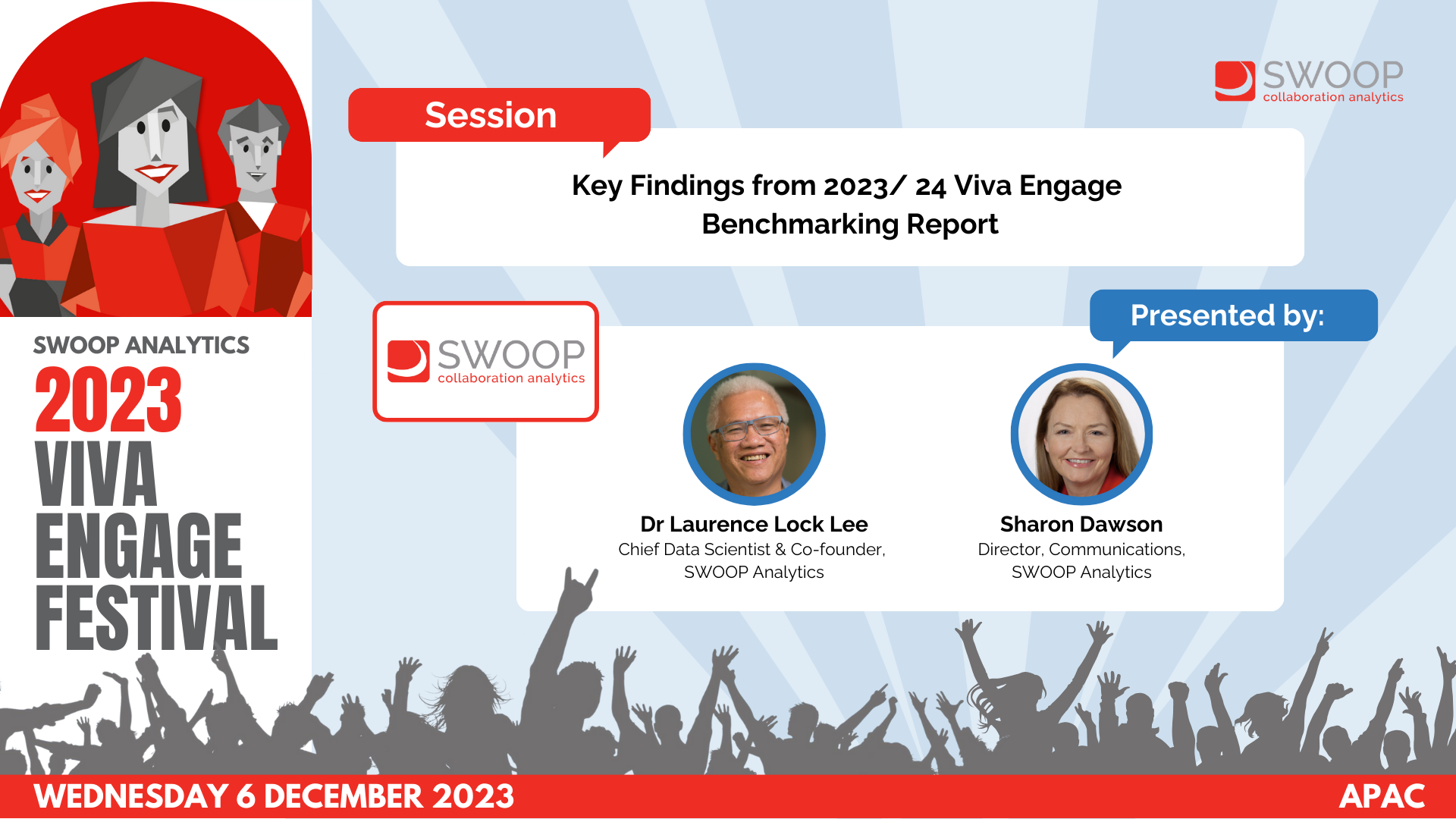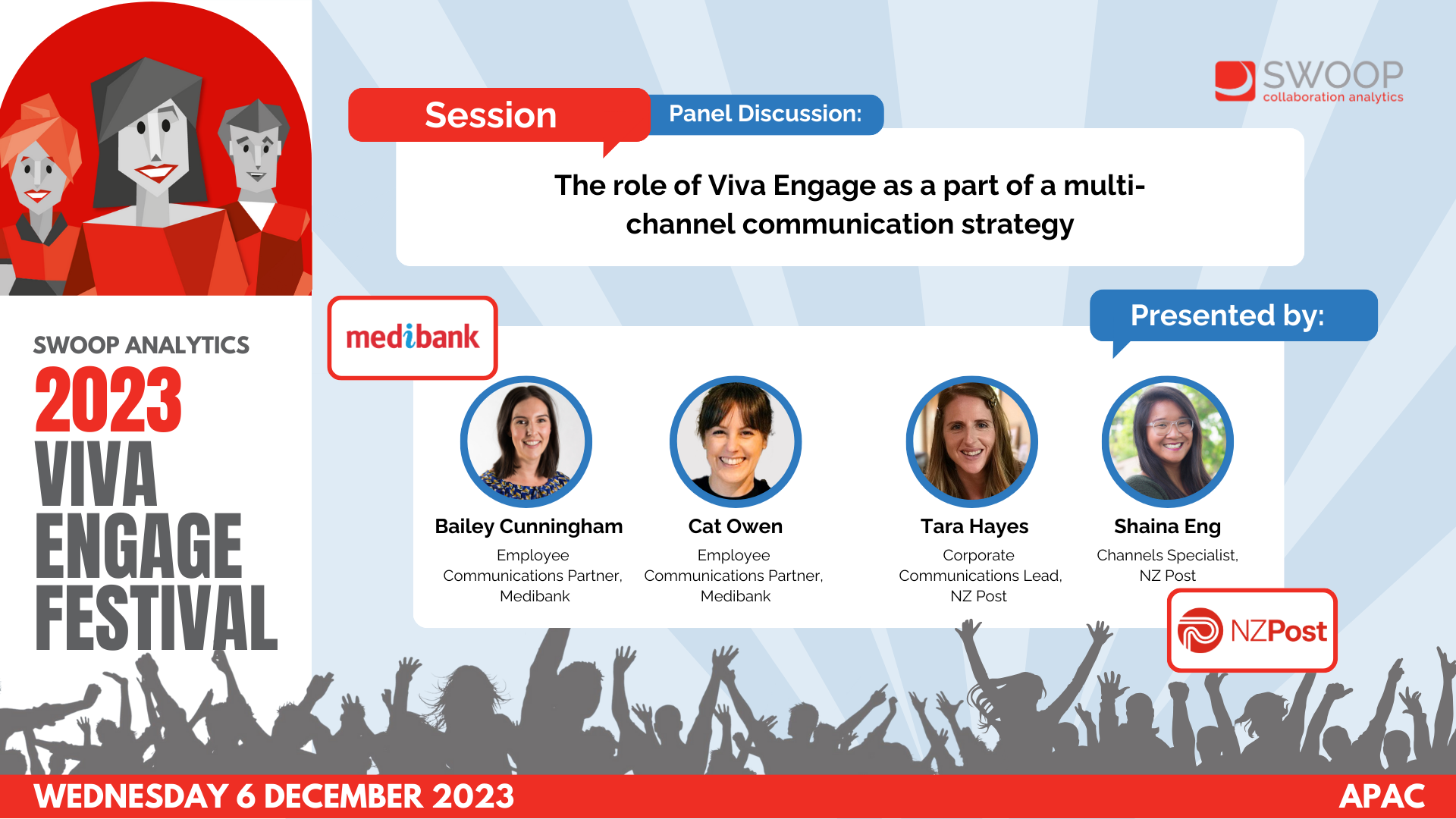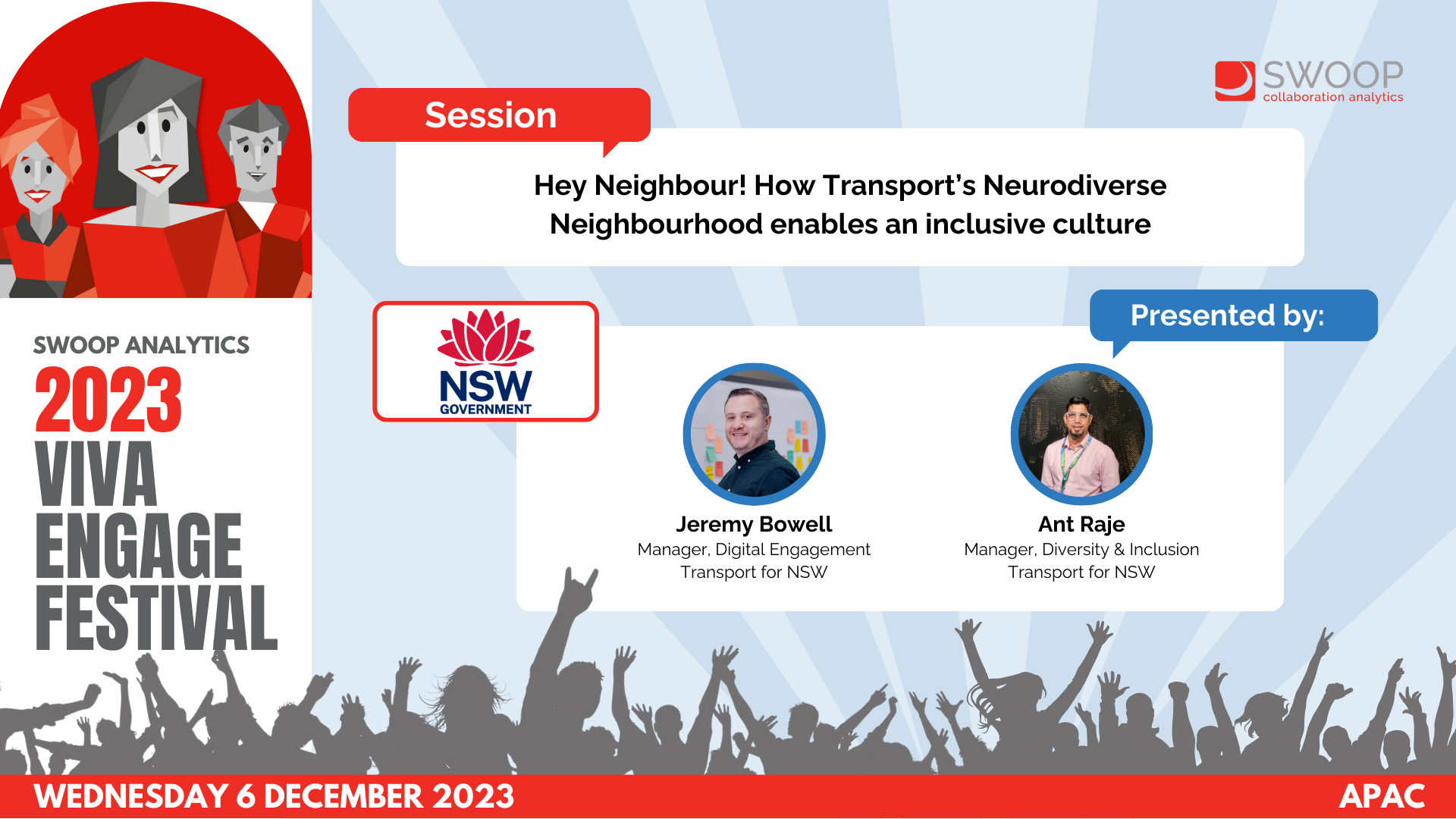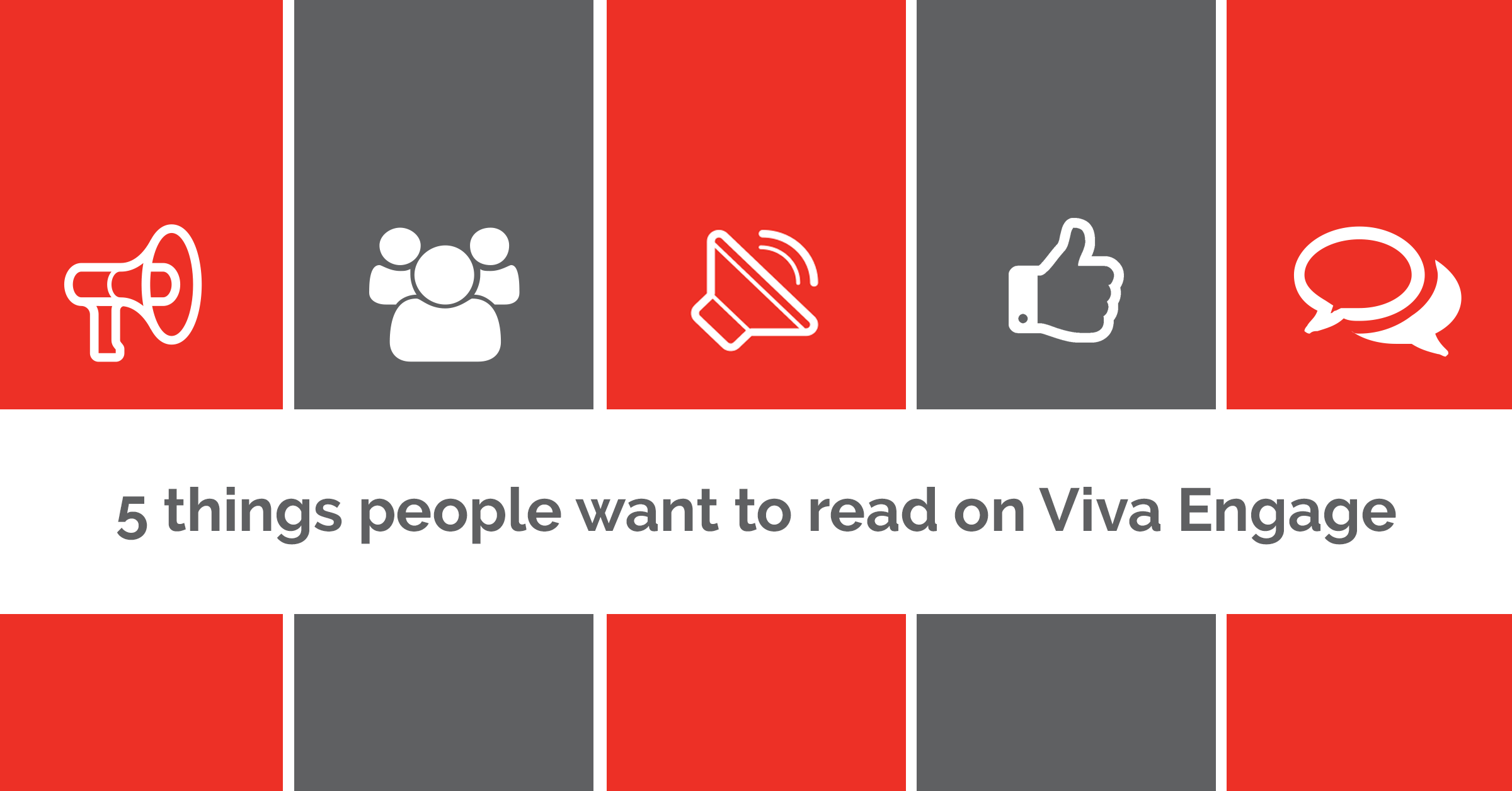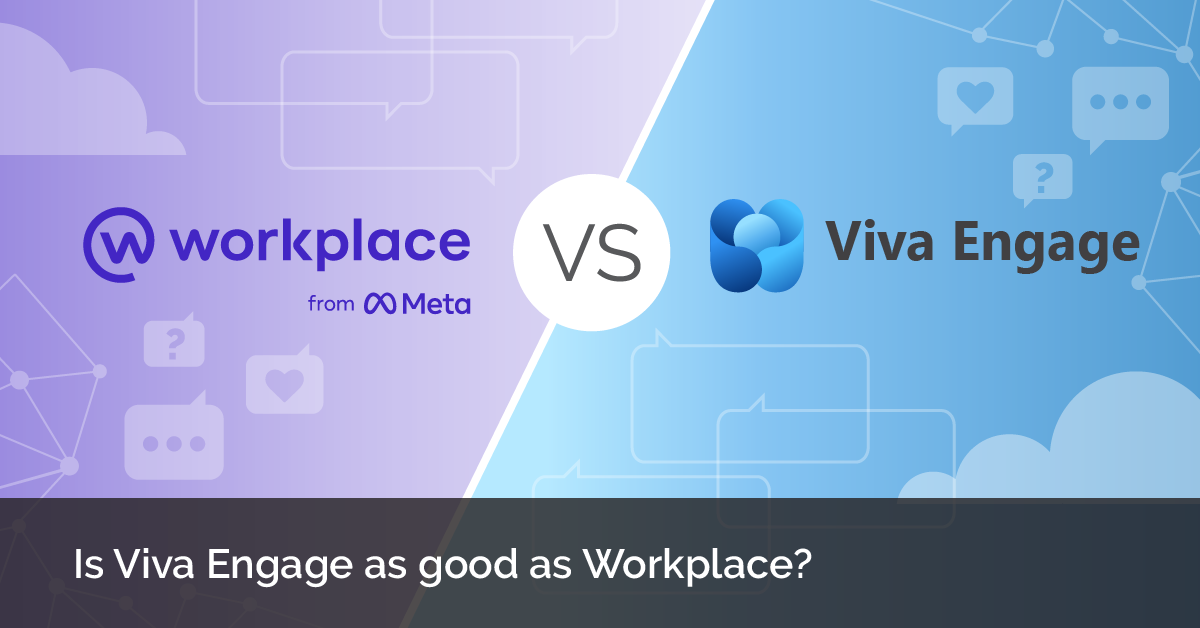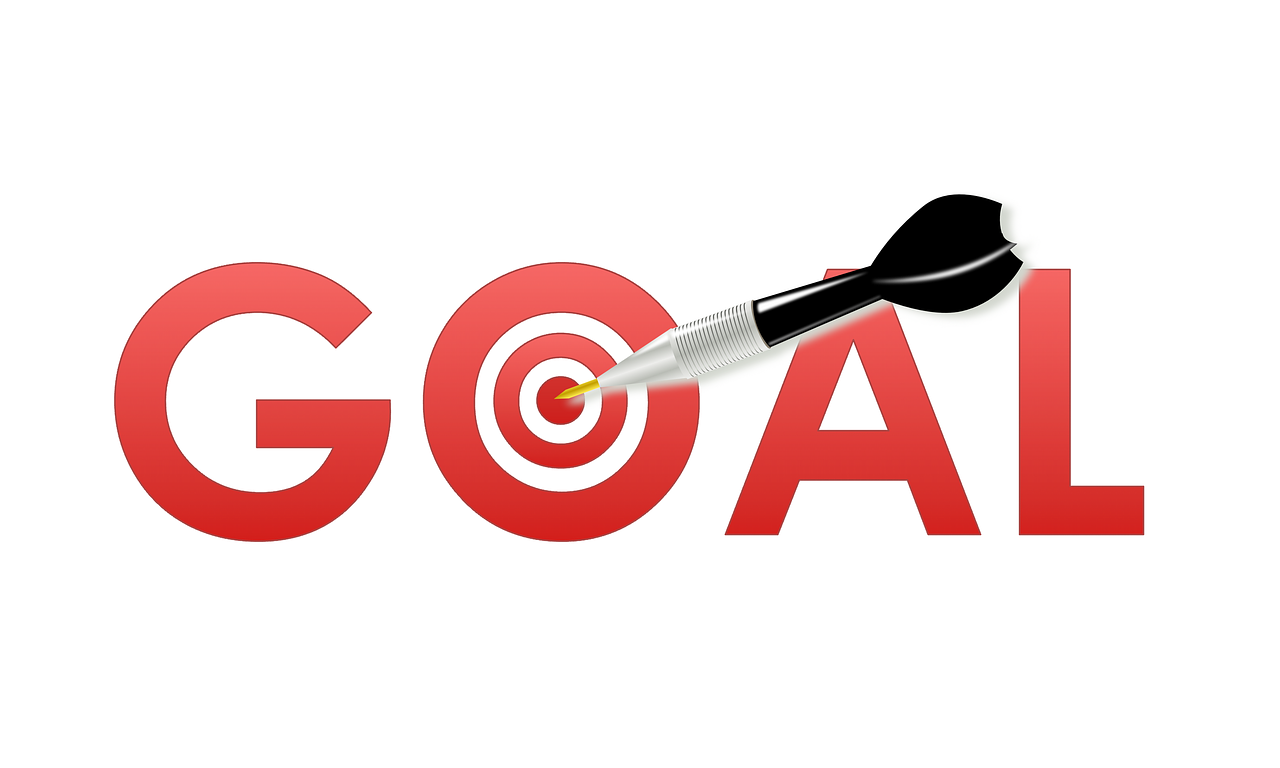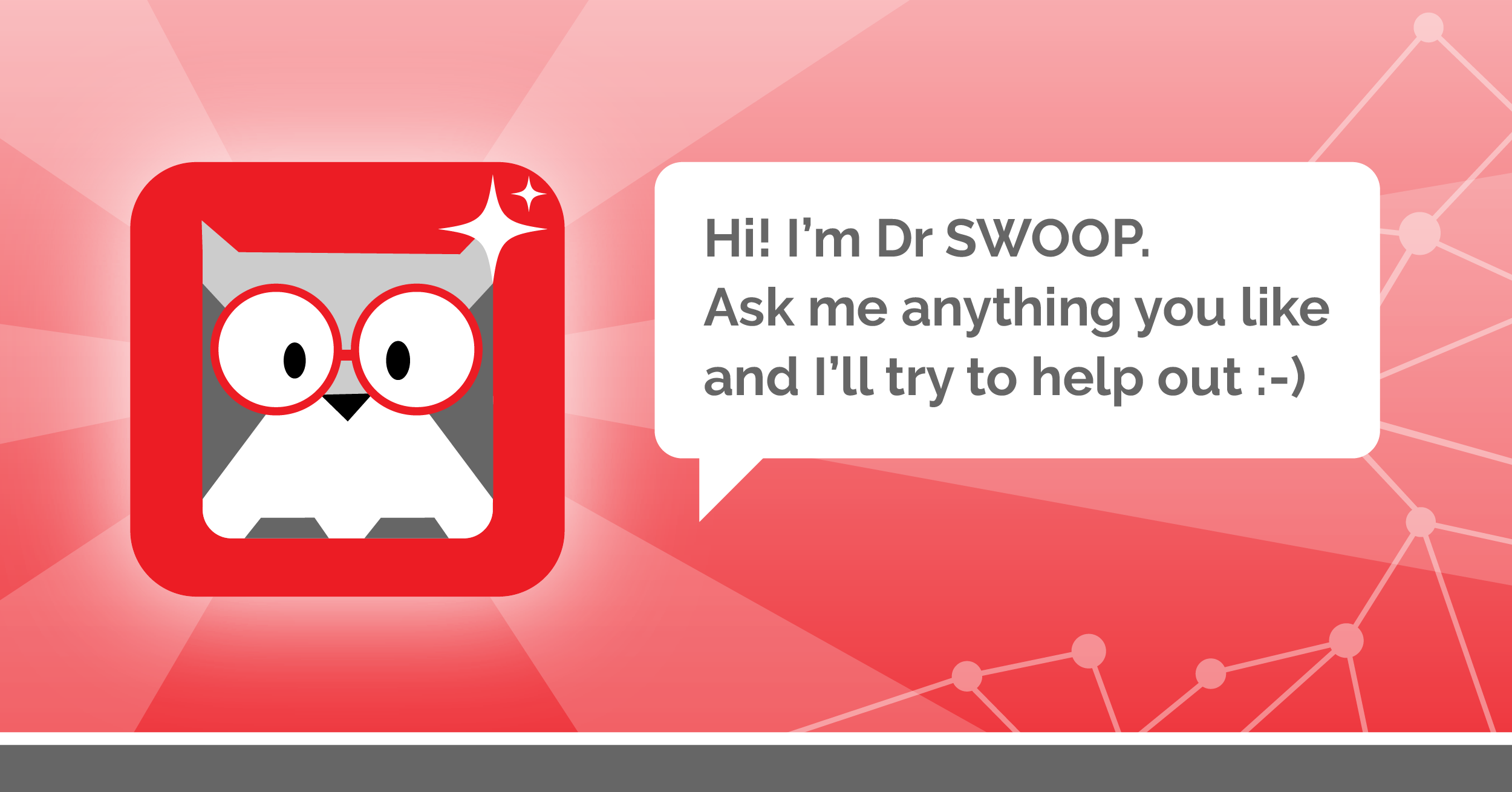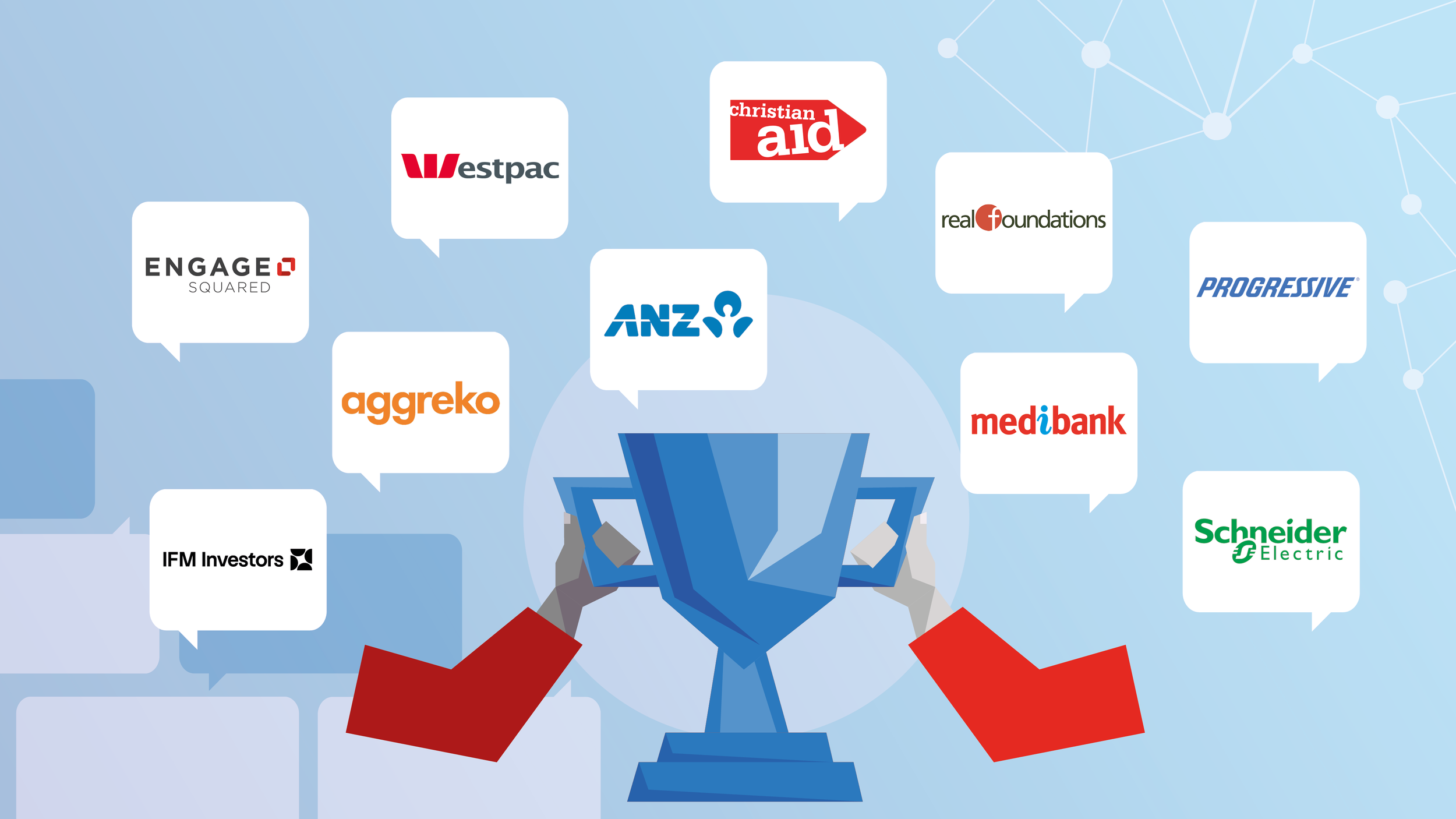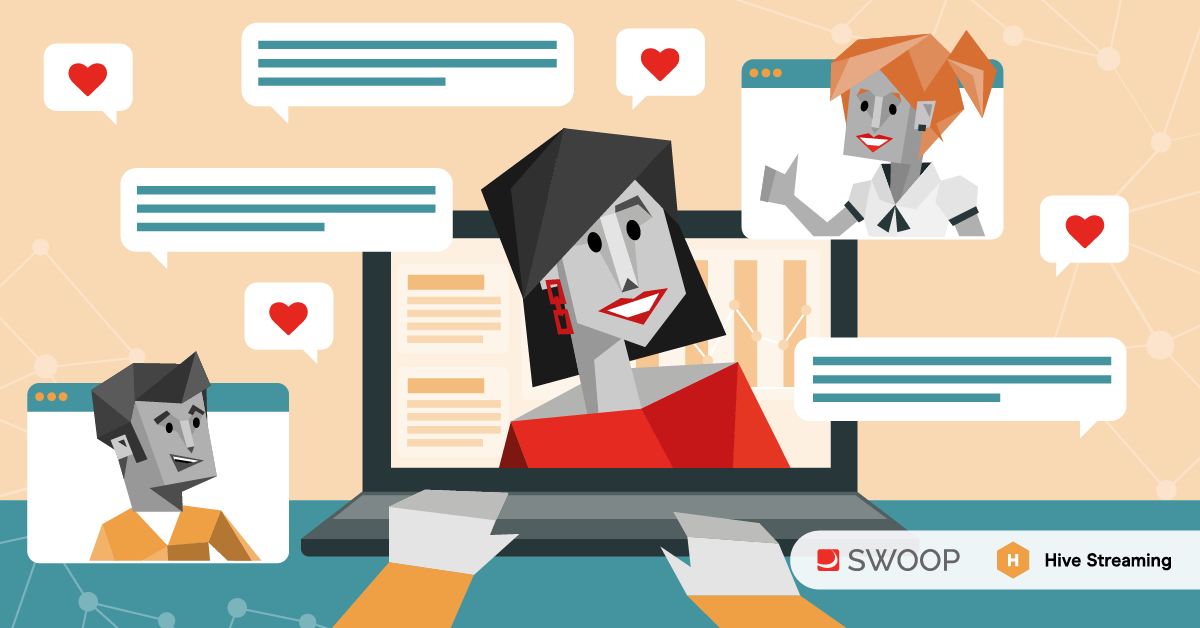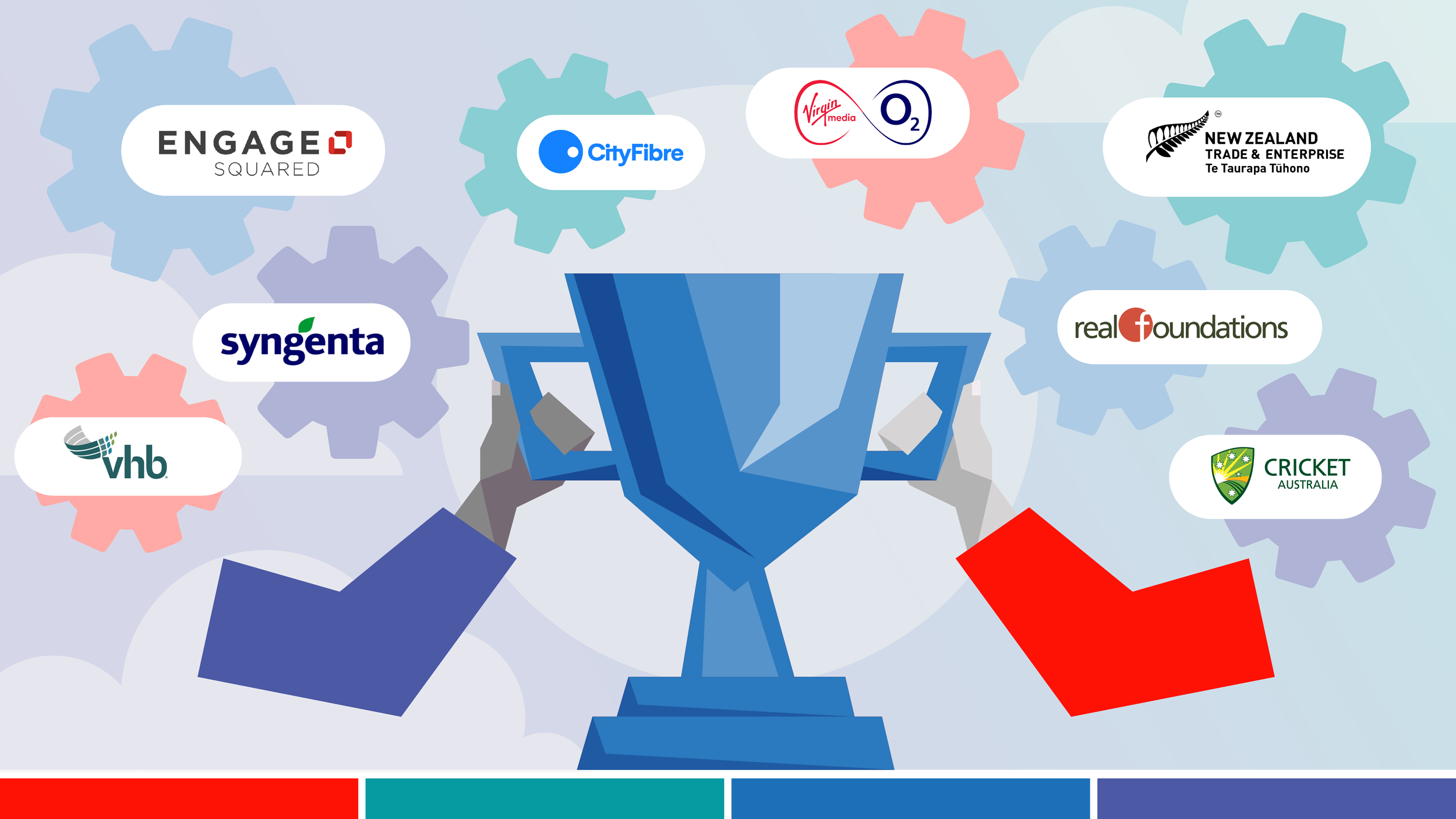Panel Discussion with Johnson Controls and BCBS NC: Giving employees a voice with Viva Engage
AMER | Viva Engage Festival 2023
Providing employees with a voice on Viva Engage harbors a culture of inclusivity, innovation, and problem-solving.
Katie Cutinello and Mark Stinneford come together to share their experiences of using Viva Engage to amplify employee voices across their organizations.
-
Our next session is a panel session. And today we're joined by Katie Cutinello, Senior Communications Manager at Johnson Controls, and Mark Stinneford from Blue Cross Blue Shield North Carolina, and he's Senior Communication Advisor. And so we're here to discuss giving employees a voice with Viva Engage and the importance of communities, employee-led communities.
And we found in our latest benchmarking report that Viva Engage this year has become more of a broadcast channel, and we wanted to share the experiences of Katie and Mark as they've been seeing some great results with their networks. So, Katie and Mark, welcome. Can you tell us a little bit about yourselves and your Viva Engage journey? And maybe we'll start off with Katie.
Are you there? Yes, I'm here. Can you guys hear me okay? Absolutely. Excellent.
Hi everyone, nice to meet you. I'm Katie Cutinello. I'm a Senior Manager at Johnson Controls, which is a very large multi-industrial company that's based all over the world.
I'm located in Milwaukee, Wisconsin. But we have our headquarters in Cork, Ireland, and then we also have a headquarters in Shanghai, China. So, a lot of people joke we're like the largest company that nobody's ever heard of.
We have over 100,000 employees, thousands and thousands of locations, hundreds of thousands of customers, millions of customers, and we do a lot. So, for those of you unfamiliar with Johnson Controls, what we call our peer set is a lot of like the HVAC industrial companies. So, if you think of like Honeywell and Siemens, Schneider Electric, things like that.
But we're also in the fire and security business as well. And one of the cool things we do are, you know, our differentiator is that we're really a smart building solutions provider. And we do the whole suite of solutions.
So, let's say we're building a new stadium. We'll be in the install side of the project and we'll be installing thermostats and security cameras and fire detection and fire protection solutions in a building. But then we will also service that building for the life of the building.
And we deploy service technicians and install managers and things like that. So, our business is really complex. There's a lot of different factors of it.
And our employee basis is just as complex. So, we have about 90,000 wired employees. And then the rest of our employees, which is about probably 20 to 30,000 are non-wired, meaning they don't have a mobile device or a company issued laptop.
So, that does make communications a bit challenging. Just within the last year, we really started to put a lot more energy around our use of Viva Engage specifically. So, prior to, I'd say just about a year ago, our main channel for communication was our portal, our employee portal, which again is only for wired employees because it's on SharePoint, as well as email communications.
Again, only really for that wired population. And what we saw is, you know, Microsoft started introducing Viva Engage and kind of like the transition from Yammer to Viva Engage is that many of our employees, unbeknownst to us, were already engaging on Viva Engage. And most of them were at that frontline level.
We don't have a large communications team. There's only about 40 of us across the globe. And what we were seeing is that on Viva Engage, people outside of communications were creating their own content and sharing their engagement stories.
And it became this amazing resource for us, not only to get our message out when it's critical or something's coming up, but really it was for us as communicators to, you know, kind of have that bottom-up approach where people are sharing their stories. And it became this goldmine for us from a communications perspective to learn about, you know, what employees are doing to create our high-performance culture and how they're driving our strategy every day at the plant level or at the branch level. And it's just been this amazing tool that's really taken off for us in terms of establishing it as a formal communications channel and getting leadership to buy into it and really use it as well.
So it's been a really aggressive journey from a communications perspective and how we put more resources and thought behind leveraging it as a formal communications channel. But we've seen amazing, amazing results that I'll be happy to talk more about later today. But in the meantime, I'll pass it off to Mark.
Hey, thanks, Katie. I work in employee communications at Blue Cross and Blue Shield of North Carolina, which has about 5,000 employees. We are based in Durham, North Carolina.
But since the pandemic, we've gone to hybrid flex, and I would say well over 90% of our employees are remote. And we would expect that to continue over the long term. So Viva Engage, I call it Yammer still.
It's hard to change. But Viva Engage has become an increasingly vital channel for us since everybody's remote and connections are tough. And sort of thinking about this, and if you're thinking about how do you increase the employee voice on Viva Engage, I think the first thing to assess is how ready is your culture for unmoderated employee conversations? How ready are your leaders to hear those conversations and respond? And one advantage we had was that our new media team about 10 years ago introduced bulletin boards that looked a lot like Reddit.
First it was a blog they called Town Square from executives, and then it morphed into more of a bulletin board. Again, a very Reddit looking kind of thing. But we got over the hurdle with that of legal saying, well, if you allow employees to comment, what if employees comment? And what if they say things that are problematic? And so we already had that hurdle when Viva Engage came along.
And so it was much easier to adopt since it was a better tool. And we had some big moments in terms of executive adoption for their voice that I can talk about for a minute. But I'd say the big thing is in terms of are you ready to have that? Are you ready to hear what employees have to say? And then are you ready to respond? And are your executives ready to engage? Absolutely.
Thank you, Mark. And I think that's the thing. And as Coco said, that in our benchmarking report this year, we actually found that it has become a broadcast channel and so a way to push out news.
But actually, to your point, Mark, that's where we know that Viva Engage can really come into its own by giving employees a voice. You know, it's a great place to knowledge share. I used to use it in a big retail space.
We use it to outsmart competitors and just build internal networks and connections with people that you would never, ever normally get to meet. And so. Let's talk about then the moderated piece.
So I know, Mark, we've had lots of discussions. Katie, we spoke with you as well. But have you ever been in that situation where you've had to actually take down a post at all? We have.
We've had a couple of and they happen a couple of times here. We have a little some kerfuffles and the biggest one we had was around the time that the Biden administration announced that government contractors were going to have to mandate their employees have vaccines. Well, we serve a substantial Medicare population, and so we're a government contractor.
And. And so when we announced that on Viva Engage, it was one of the worst commentary threads that we have ever had and that we were so used to allowing open conversation that we were very slow to respond. And so basically our policy has been through our electronic communications policy is you can't disparage employees.
You can't disparage the company. You can't disparage our customers. Well, that didn't quite cover a lot of the.
The. I had misinformation about the vaccine and the scare stories coming from very surprising corners because we are a health care company and we are people getting their vaccines. So we the first time I can remember, we had to end the conversation.
Because it was getting so out of hand, and then later on, I wrote into the guidelines because we didn't have a guideline for that because they weren't disparaging anybody, really. They were just complaining about the decision and saying that we should just give our Medicare business and that the vaccines didn't work. And so I wrote in something later to our guidelines that you couldn't promote activity contrary to company policy and people getting vaccines.
It's company policy. It it was awful, and I think if we had not had the presence on Yammer and the tradition of Yammer and open commentary, I think some of the executives would have probably jumped it. And I think one of the challenges we have that we have on difficult issues is that.
Where we need to mature is we need to have executives and experts ready to apply to questions, even tough questions on that and not ignore them just because they are hard. And I think we have some growing to do in that regard. We had some good commentary from our medical directors, but it wasn't necessarily consistent.
And I say in our maturity in general, I think we have good engagement at Yammer, but I think executive presence needs to be more than posting stuff. It would be ideal if they were in commenting on other people's posts, liking or whatnot. And I think that would help increase their credibility in the hybrid environment when engagement is very difficult.
Yeah, no, thank you for sharing, Mark and Katie. We know at Johnson Controls, you're still quite early on on your Viva Engage journey. But have you ever been in that situation? I know that obviously you do want to use it to give employees that voice.
So I do think sometimes people do think it will come with a bit of a risk. I think treat people as adults. It is still a professional channel.
But I am aware that it can make some people nervous. So have you had any experiences? Yes. I think one of the great things about Viva Engage is that it's sort of self-monitored.
So for every bad comment you have, you usually have someone on the flip side argumenting it. So there's a little bit of balance of the conversation where we'll observe those, but we don't really get alerted to them unless they have really high engagement. That can be hard to find because so many people are posting on the channel on a given day or maybe it's in a specific community.
But one of the things that was really interesting is we hosted an Ask Me Anything through some of the new Viva Engage. I think Microsoft's calling them enhanced features or whatever it is. But we hosted one with our executive committee, which is about the top 10 leaders in the company.
It was literally a free-for-all for any employee to join this digital platform on Viva Engage to ask our executives questions. Of course, we're thinking in our head, how is this going to go? Luckily, it wasn't in 2020 or 2021, but a lot of the questions obviously steer further away from strategy and questions about how we're doing as a business and more so employee benefits and wellness. So I think what that just shows you is that employees really see Viva Engage as a place where they do feel comfortable asking these questions.
But one of the great things about Viva Engage versus something like a town hall where we also get a lot of these more HR-focused questions, you're not anonymous. Technically, you have the feature within AMA to turn on the ability for people to post anonymously. But if any of you are familiar with Teams Live events, a lot of the questions, you can't turn off that anonymous feature.
So a lot of questions come in. I'd say 80% of the questions we get on a town hall are all submitted anonymously because people don't want their name associated with it. With Viva Engage, your name's there, your photo's there.
And we see that the conversation in general and the sentiment on Viva Engage then tends to be a little bit more positive and community-focused versus anything that's really directed or any type of hate speech or anything like that. And I saw someone ask in the comments, do you have any type of community guidelines? We don't specifically for Viva Engage as a channel, but we do for our town hall Q&As and we do for the Ask Me Anything events because that is where we see the majority of those type of negative comments typically trickle in. Thank you.
Yeah, and I do think, you know, I've managed a few Viva Engage communities. It was Yammer when I managed them, but I used to say to leaders, if people were in a place to share their thoughts and feelings, that you have actually built quite a safe space for them to be heard. And I think that is where Viva Engage, tools like Viva Engage can just really help to understand what's happening at that level, what's being discussed, how people are feeling.
To use it really as a gauge as well to just help, you know, what do we need to focus on? Where should we concentrate our efforts within the business? So I'm going to actually ask about the policies. So, Katie, you've just mentioned a policy. I've just posted actually two blogs that we've written for SWOOP, but Mark, you approach it a bit differently, I think, don't you at Blue Cross Blue Shield with policies? We have guidelines.
We have an existing electronic communications policy that covered most of it. We've got a technology policy. And so, again, the biggest thing you cannot do is disparage our company, our employees, or our customers.
And people are pretty good at adhering to that, but we had to write more detailed guidelines. And, you know, to Katie's point, the community generally moderates itself. We don't have to do heavy moderating.
But when it comes up, we have a handful of employees who are used to posting wide open on social media, and they expect the same sort of wild west to apply. And so sometimes we have to get involved. I'd say there's only been a handful of instances where we locked conversations or we deleted posts.
But we had to expand our guidelines, for instance, where there were people, again, a couple of people who questioned the existence of gender fluidity in very graphic terms. It did not violate our policy at the time explicitly, but then we had to write into our guidelines if you posted anything that had the impact of making employees feeling unsafe or vulnerable, then we had the right to take it down. And what we say in all of our guidelines is it's a professional channel.
It's like the discretion on what appears is at the discretion of employee communications. But we find that when people post these things that are troubling, that they want a chapter and verse of what they violated, and they won't accept necessarily the answer of what it's our channel and we're moderating it. But how we typically handle if there's a problematic post, we'll discuss with our VP over employee relations.
Do we need to delete the post? Do we need to lock the conversation? And if there's further action needed with the employee, employee relations handles it. And we don't hear what the resolution of it is, other than we have a conversation around, do we do anything with the post? My bias tends to be for leaving stuff up and letting the community handle it unless it's explicitly offensive or violates our policy. One advantage we have as a smaller company is that if there is a post that anybody objects to, I find out within 30 seconds.
There's no need for some early warning system, but people are pinging me on IM on Teams saying, hey, you got to check out this post. So that's one of the advantages we thought about. Do we need a reporting system? No, because our system works.
And then I was talking to our Office 365 guys about, do we need a way to block people from Yammer? And the guy's response was basically, if you find that you need to block people from Yammer, there are big problems to deal with in their performance than blocking them from Yammer. So what we have working with employee relationships and our leadership tends to work. I think if there's, if there has been any fault on my part, it's been slowness to recognize troublesome posts and do anything about it because we like to keep stuff up.
And, you know, our CEO has said, you asked him for their opinion, you got to hear their opinion. Yeah, completely agree. And I can see there's lots of thumbs going up.
Does anybody have any questions for Katie and Mark while we're just talking about this? Have you seen anything similar that you want to ask some questions on? I'm just having a look in the Q&A. So, um, oh, Ty, so Ty from the Home Depot has actually got a question. So how do you avoid the perception of censorship when you are limiting and deleting the posts? I'm sorry, what was the question? Oh, so it's from Ty Collins at the Home Depot.
So how do you avoid the perception of censorship when you're limiting and deleting the posts? Well, I think, I think the person who's post gets deleted or the thread gets locked out, they're going to think you're censoring it, which is, you know, and probably in fact, correct. It's a, it's a company channel. So I don't know that I worry about that perception so much.
We had an interesting case where somebody put a picture of on Yammer of their kid getting the COVID vaccine. And we blocked other threads related to this dumb debate about whether the vaccines were safe or not. And somebody came back to me and even wrote to our CEO saying we were allowing pro-vaccine messages on there and not anti-vaccine messages on there.
And the CEO didn't respond but told us, do they know where they work? And so, yeah, I think, I think your critics, the people, and again, I could name you two or three people in the company of 5,000 who have put up problematic posts. So it's like something you have to deal with, but it's not, you know, it's not part of my day to day existence. It's once every six months.
And I think my bigger fear is that people aren't sharing legitimate concerns, legitimate questions from our leadership because they're, they're scared of what the reaction might be. That's just a cultural barrier. Yeah.
Thank you, Mark. And Katie, quickly for you, I think we've got about five minutes. Have you got the same people, the same perception? So if you're sending posts or deleting posts? Yeah, I mean, I think it's a really fair question, especially when you bring in like free speech and what that means, especially for a global company, right, with people from all over the world and how they interpret what free speech means.
You know, to Mark's point, it's a company channel, so there's more regulation when it comes to that. Luckily, we haven't really experienced much hate speech or anything discriminatory within Viva Engage, although we don't monitor it as much as something like, you know, a town hall where every single question comes in and we do have to delete some of them. And how we respond to that is say, hey, you know, based on your question, this, you know, conflicts with our community guidelines, please see here for more information.
So we always lean back to the community guidelines. And at the end of the day, I mean, it's subjective, right? It's how you interpret it. And it's also, we have people submitting questions from many different countries and English isn't their predominant language.
So sometimes it's up to interpretation as well. We really try and avoid deleting anything without giving a reasonable answer as to why or taking it, you know, legal and saying, hey, you need to have a separate conversation with this person, making sure that we're getting the right people involved. Yeah, it has to be done, doesn't it? It is, as you both said, alluded to, it is a still a professional channel, your name, your photos against it at the end of the day, so it's attributed to you.
And I think from my experience as well, you know, in my time, I have had to remove a few posts, but mine were never malicious, I think more misguided and just. They just, I just had to like work with them just to say why. But I think it's really important, isn't it? Like you're doing work with other stakeholders.
I've worked with employee relations, HR, things like that. Just to make sure they're aware. And I think the only time that you do delete or have to remove a post is it because it is breaching those guidelines.
And so they're in breach. You have to remove it. You know, I don't.
And exactly the same as both of you do. You don't want to take down a post just because you disagree with it, because then that is the censorship side. I was actually on the festival this morning with Europe Investors.
They actually had a really great presentation, very similar to this, about dealing with posts and how to take them down and how to community manage. So I know the slides are going to be shared on that. But anything else to end the panel? It's just been super interesting.
And I think that this topic is so helpful. Gemma, I would a couple of points that really helped Yammer adoption for us and for executives, bringing their voice there and encouraging employee feedback. It's got to be three or four years ago now.
We got rid of performance ratings as a company. You get a detailed conversation with your supervisor, but you don't get a number anymore. And we made the decision at the time was, you know, this is going to generate a lot of questions and feedback.
So our chief people officer at the time posted that on Yammer and then sought comments and questions. So that set the precedent of having the executive voice on stuff that might be sensitive or where we expect commentary. And so the second one was a really difficult situation.
Our current CEO, our first black CEO, came in the weekend after the George Floyd murder became headlines in quite the national uproar. And he decided on his own, like the night he was getting here, that that would be his first post about George Floyd. And so that really, I think, gave the platform credibility.
And his comment was he came from a larger insurer, a larger blueprint. And his comment upon arriving here was, boy, that Yammer thing, it's amazing. That says it all, doesn't it? I think.
I think to lean in, to acknowledge, to share. I think that's amazing. Absolutely amazing.
I think there we will finish it there. Thank you so much for that panel, for your time, Mark and Katie. Really do appreciate that.

